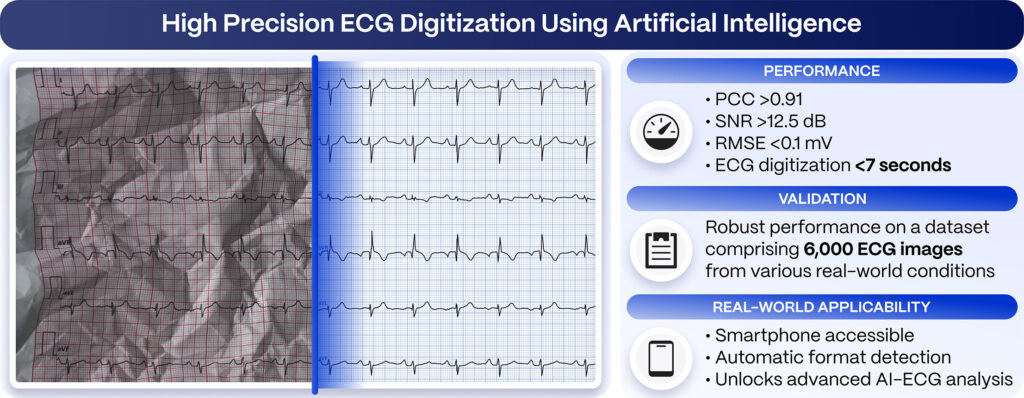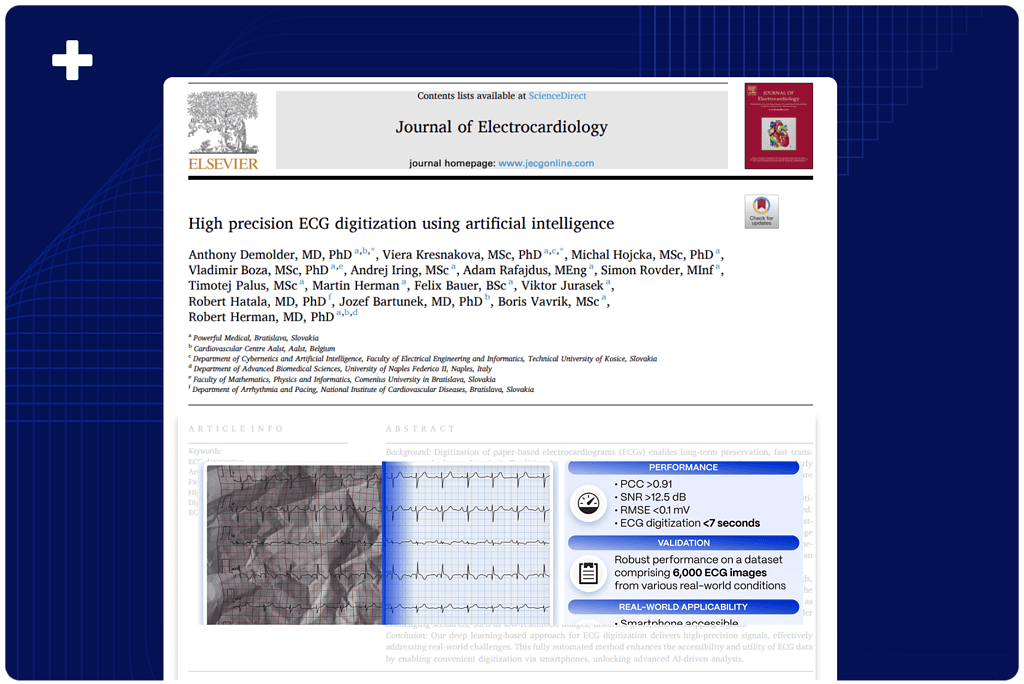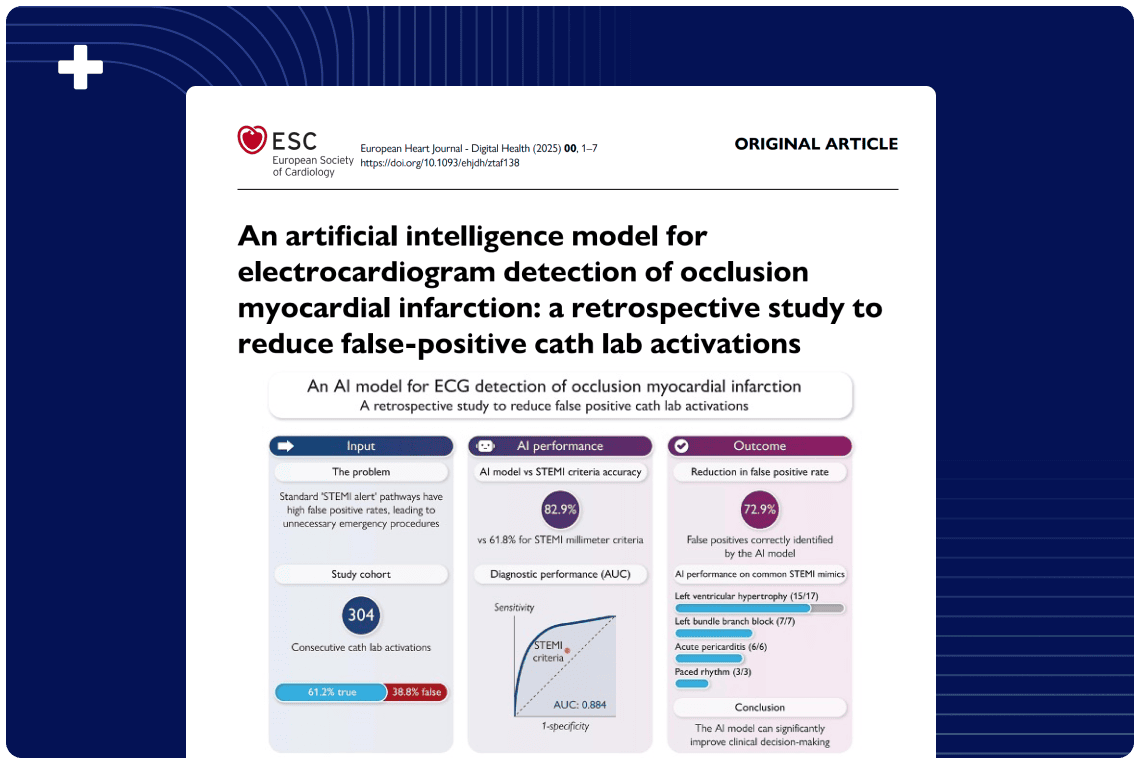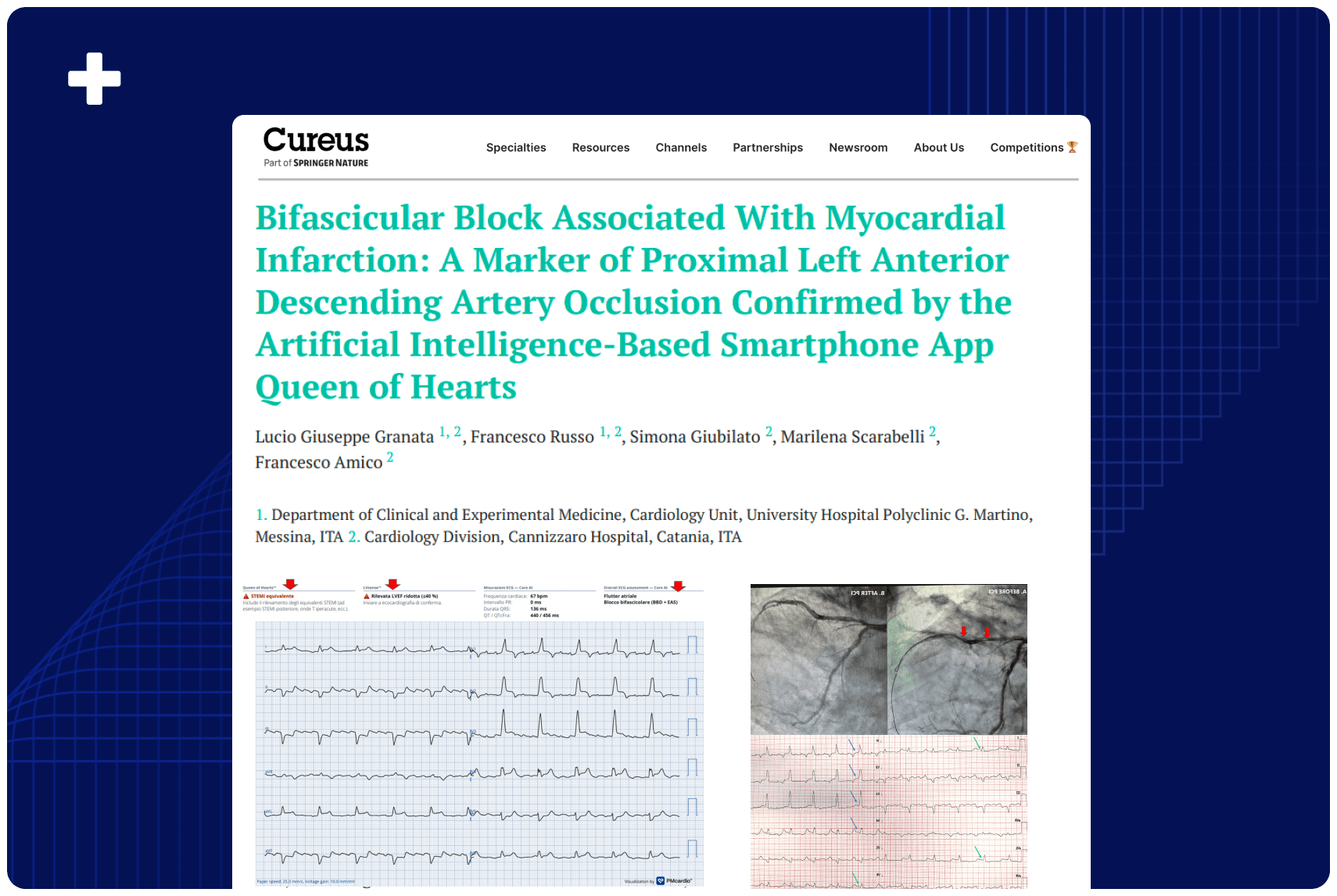Overview
This study presents a fully automated AI solution for high-precision digitization of paper ECGs, including smartphone photos. It enables rapid ECG conversion in under 7 seconds, maintaining strong performance even in low-quality or distorted images. Ideal for use in ambulances, primary care, or low-resource settings, it bridges the gap to advanced AI interpretation and secure digital sharing when native digital ECGs are unavailable.
Published In: Journal of Electrocardiology – presented at the annual ACC’25 conference
Published Date: February 19, 2025
Background
Digitization of paper-based electrocardiograms (ECGs) enables long-term preservation, fast transmission, and advanced analysis. Traditional methods for digitizing ECGs face significant challenges, particularly
in real-world scenarios with varying image quality. State-of-the-art solutions often require manual input and are limited by their dependence on high-quality scans and standardized layouts.
Methods
This study introduces a fully automated, deep learning-based approach for high precision ECG digitization. In the normalization phase, a standardized grid structure is detected, and image distortions are corrected. Next, the reconstruction phase uses deep learning techniques to extract and digitize the leads, followed by post-processing to refine the signal. This approach was evaluated using the publicly available PMcardio ECG Image Database (PM-ECG-ID), comprising 6000 ECG images reflecting diverse real-world scenarios and smartphone-based image acquisitions. Performance was assessed using Pearson’s correlation coefficient (PCC), root mean squared error (RMSE), and signal-to-noise ratio (SNR).
Results
The ECG digitization solution demonstrated an average PCC consistently exceeding 0.91 across all leads, SNR above 12.5 dB and RMSE below 0.10 mV. The time to ECG digitization was consistently less than 7 s. The average failure rate was 6.62 % across leads, with most failures occurring under extreme conditions such as severe blurring or significant image degradation. The solution maintained robust performance even under challenging scenarios, such as low-resolution images, distorted grids, and overlapping signals.
Conclusion
Our deep learning-based approach for ECG digitization delivers high-precision signals, effectively addressing real-world challenges. This fully automated method enhances the accessibility and utility of ECG data by enabling convenient digitization via smartphones, unlocking advanced AI-driven analysis.

Authors: Anthony Demolder, Viera Kresnakova, Michal Hojcka, Vladimir Boza, Andrej Iring, Adam Rafajdus, Simon Rovder, Timotej Palus, Martin Herman, Felix Bauer, Viktor Jurasek, Robert Hatala, Jozef Bartunek, Boris Vavrik, Robert Herman
















